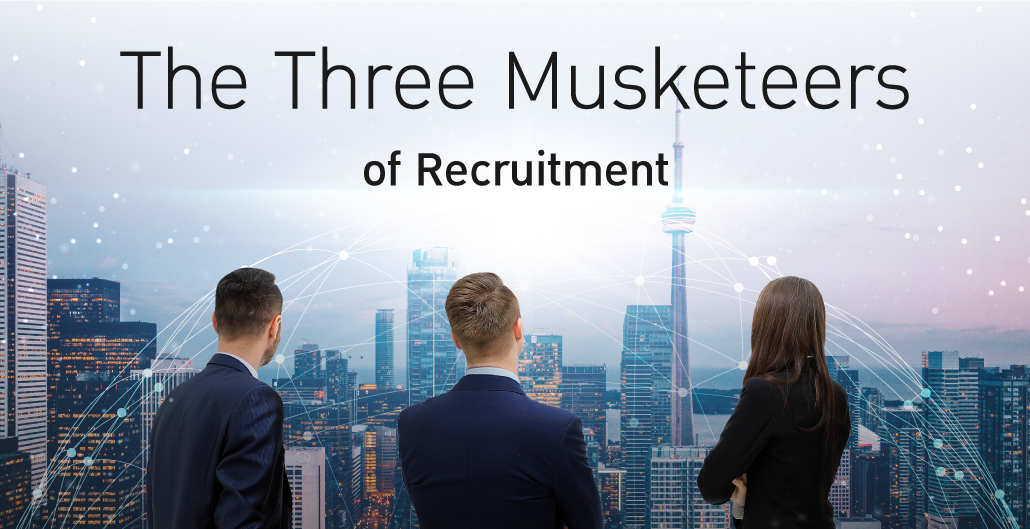The Three Musketeers of Recruitment
By Neil Russel – Human Resource Learning & Development Manager, RMA Group
I was recently asked to speak at an American Chamber of Commerce HR discussion. Along with three other speakers, I was asked to give my view on the relationship between HR and recruitment agencies. Heidi Gallant, the chamber’s director, along with Richard Jackson and the HR Committee, ensured it was an honest and open forum.
The agency/HR relationship should be easy. We both want the same thing: the best available candidate to fill the role. So why is it so difficult, too often ending in failure and finger pointing?
Having worked on both sides of the fence, I know that each side has plenty of reasons to feel frustrated with the other when things go wrong.
Before diving into solution mode, let’s be honest and look at the main reasons why recruitment fails.
The Bad Briefing
You know the one – a half-baked job description with too many gaps, or on the contrary, one that drones on and reads like a shopping list of skills and experience.
The Bargain! The Perfect Candidate at the Cheapest Price
I don’t need to explain this one, do I?
The Fishing Trip
We want to see who is out there, just in case we need to hire someone, or we have an internal candidate and want to compare.
The œI Know we said we wanted this but now we want that Surprise
You present a shortlist that matches the criteria from the original briefing only to be told that another, previously unknown, skill or experience is needed, and the candidates presented don’t have it.
Often this is exacerbated by HR person trying to explain the role and the department in which it sits but without the depth of knowledge to full convey what is needed and why.
What Can We Do?
I’m sure you have encountered these and manyothers in your time but consider that this list of challenges isn’t met solely by the recruitment agency. The HR department faces them as well. Too often, the line manager, the person who has the position sitting in his/her P&L, is barely engaged in the process. As the person ultimately making the hiring decision, shouldn’t the manager be much more involved?
Simply put, line managers are busy. Good line managers, those who care about their team and want to hit the KPIs set, are the busiest. They are the people taking up the slack when someone leaves or when the workload piles up, which often coincides with when they need to be focusing on recruitment.
Having line managers who take ownership and responsibility is crucial to the success of the recruitment process and getting them consistently involved is the best way to do this. Their time is precious so it important their involvement is used effectively.
Why don’t we collaborate more with line managers during the recruitment process? Is HR trying to protect its territory, worried that bringing in a line manager means potentially losing influence and responsibility? If HR can acknowledge that it doesn’t own the recruitment, but acts as a project manager for the process (being the COE œcentre of excellence for managing and improving the process hiring) and as the concierge for finding the right recruitment partners and sources of candidates, then its role becomes that much more interesting and fulfilling.
And the recruitment agencies, what of them? Good recruitment consultants have a wealth of knowledge and a view of the external market HR can only wish for, especially those specializing in an industry or profession. Too often, however, they do not challenge HR or the line manager, unless it comes to the œyou need to pay a higher salary point.
It’s time for some healthy conflict in recruitment. It’s time for all parties to get comfortable with challenging one another, openly discussing the problems and finding better solutions. Without it, the recruitment process will continue to fail, and, for that, we are all equally responsible.
Until AI replaces all of us and the need for recruitment (unless, in some dystopian future, we will have to interview the androids) let’s make it œall for one and one for all .
We have our Athos, Porthos and Aramis but we still need our d’Artagnan, who, in our little story, is the candidate. Like Dumas’ d’Artagnan, our candidate is not ideal – he lacks some of the skills to make the perfect musketeer, but he brings a great attitude, and overtime, with guidance and training from his colleagues, he becomes a great member of the team.



